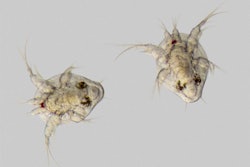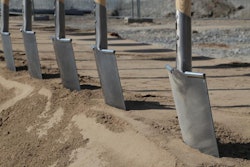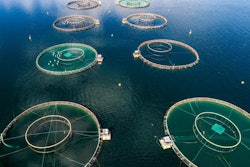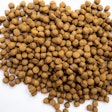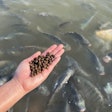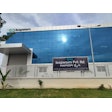The world-class research capabilities of the Alltech Coppens Aqua Centre (ACAC) and its capacity to provide a practical platform for product development and solutions for the aquaculture industry have been recognized with the announcement that the ACAC is to become an Alltech bioscience center.
For more than 15 years, the Leende, Netherlands-based ACAC has carried out practical and applicable research within the field of aquaculture. In 2017, Alltech invested heavily in the facility, which will now become its fourth bioscience center. This center will be home to an expanded team of aqua researchers dedicated to quality, innovation and the development of new applications in aquafeed.
As part of the ACAC’s progression to a bioscience center, Alltech Coppens is delighted to announce that Dr. Philip Lyons will be taking on a new role as a global aquaculture research manager to help coordinate research activities at the new center with Alltech’s ever-expanding global research programs.
“Alltech’s bioscience centers are laboratories that maintain close ties to nearby universities to maximize interaction with academic researchers, share equipment and allow students in master of science and Ph.D. programs to work in an industry lab setting,” said Dr. Karl Dawson, vice president and chief scientific officer at Alltech. “There are more than 120 scientists working in our bioscience centers around the world. By becoming a bioscience center, the ACAC allows for Alltech to address, research and solve aquaculture industry issues. The center will interact directly with many of our 28 research alliances and will focus on activities with the six alliances who directly work in aquaculture.”
Research and development represent the cornerstone of business at Alltech Coppens. In the ever-changing world of the aquaculture industry, being adaptable to market trends and pursuing innovation in research positions Alltech Coppens to be ready with diets to fit every farming situation.
“Key aquaculture research areas include developing novel tools for evaluating nutritional responses and defining strategies for utilizing alternative feed ingredients and nutrients,” Dawson said. “We are also carrying out research into nutritional approaches for enhancing disease resistance and health as well as optimizing mineral nutrition and enhancing fat digestibility. We are also responding to market demand for new strategies for improving product quality and minimizing the environmental impact of aquaculture in general.”
In addition to supporting and evaluating Alltech Coppens feed formulation initiatives, the new bioscience center will actively focus on beneficially altering fat digestion, optimizing mineral nutrition, and developing novel nutritional approaches for reinforcing gut health and preserving product quality while minimizing the environmental impacts of aquaculture. It is expected that this center will be the site for basic and applied research as well as serving as a site for graduate student and intern training activities.
“My father saw great potential in Alltech Coppens,” said Dr. Mark Lyons, president and CEO of Alltech and son of Alltech’s founder, Dr. Pearse Lyons. “Since the acquisition in 2016, our goal has been to establish Alltech Coppens as the cornerstone of Alltech’s global aquaculture business. By making the ACAC a bioscience center, we are following through with Dr. Pearse Lyons’ commitment to Alltech Coppens and the aquaculture industry.”
As Alltech’s newest bioscience center, the ACAC joins the ranks of the Alltech European Bioscience Centre in Dunboyne, Ireland, the Alltech Center for Animal Nutrigenomics and Applied Animal Nutrition in the U.S. and the Alliance Laboratory in Beijing, China.


